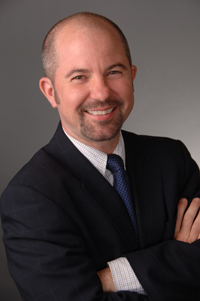
In light of the court’s decision, Judge Walker did the right thing by taking the issue off the table -ensuring that what is now an entirely moot point will not distract from the constitutional issues in the case. But Judge Walker’s gracious approach apparently did not satisfy the defenders of Prop 8. Just before the morning break, Charles Cooper, the lead lawyer defending Prop 8, requested again that the judge to stop all video recording and destroy all tapes of the first few days of the proceedings. He had requested this earlier in writing. Judge Walker said that recording would continue, so that he can review the video in chambers while writing his decision.
It is heartbreaking that a video record of this groundbreaking trial will not be broadcast to the public. Watching this trial has been tremendously educational, even for those of us who have spent our careers studying and litigating these issues. The public has lost a unique and invaluable opportunity to see the leading experts in their fields talk about the real-world impact of denying marriage equality, and to learn about how our courts really work in the context of a civil rights case that millions of people deeply care about.
Today’s first witness was Edmund Egan, the chief economist in the Office of the Controller for the City of San Francisco. Dr. Egan analyzed how Prop 8 has affected the San Francisco economy and the City budget.
A quick bit of backstory: Shortly after this case was filed by the couples, Kris Perry, Sandy Stier, Paul Katami and Jeff Zarrillo, Judge Walker allowed the City of San Francisco to intervene in the case on their side. Judge Walker did so because the City argued that Prop 8 has harmed the City in a way that is different from the harms suffered by the other plaintiffs.
Today’s testimony by Egan detailed those harms. For example, fewer weddings means less economic activity. The City’s budget suffers because married couples tend to be both healthier and wealthier than unmarried people. Denying same-sex couples the right to marry also reduces the City’s tax revenues, and the City’s public health costs are higher because many LGBTQ people do not have health insurance through a spouse and are forced to depend on the City as health care provider of last resort. It is a challenge to assign a precise dollar value to these effects, but to the extent that it can be done, Dr. Egan showed that it is clear that the City loses millions of dollars annually because of Prop 8.
Peter Patterson, one of the attorneys defending Prop 8, cross-examined Egan for what seemed like an eternity, quizzing him on the minutiae of his analysis in an attempt to show that the economic impact of Prop 8 is less than Egan concluded. But the relentless nitpicking did nothing to overcome Egan’s larger point: Prop 8 damages the economy and costs the City money in numerous real, tangible ways. Unless the defenders of Prop 8 are prepared to present a more persuasive alternative analysis that shows Prop 8 has no negative economic impact, it’s hard to see the relevance of this morning’s cross-examination.
Today’s only other witness was Ilan Meyer, an expert in the health consequences of anti-LGBTQ discrimination and stigma. Dr. Meyer had the courtroom riveted throughout his testimony. He detailed the harms LGBTQ people suffer from the relentless daily stress of living in a society that stigmatizes not just our lives, but our very being.
I bet I’m not the only LGBTQ person in the courtroom who listened to Dr. Meyer’s testimony with pained recognition of how deeply so many of us have internalized the limitations placed on our dreams and aspirations by homophobia. As plaintiff Kris Perry said in her moving testimony on Monday, she never dreamed she would be able to marry, and it is painful and humiliating to want something you know you can never have. Listening to today’s testimony rekindled my anger at the damage we all have suffered – and that LGBTQ youth continue to suffer-by being deprived of the same basic human opportunities others have to belong, and to love. I am so grateful to the couples who are opening up their lives in this suit on our behalf, and to the brilliant team of attorneys from Gibson Dunn and the City and County of San Francisco who are standing up for all of us in this case.









